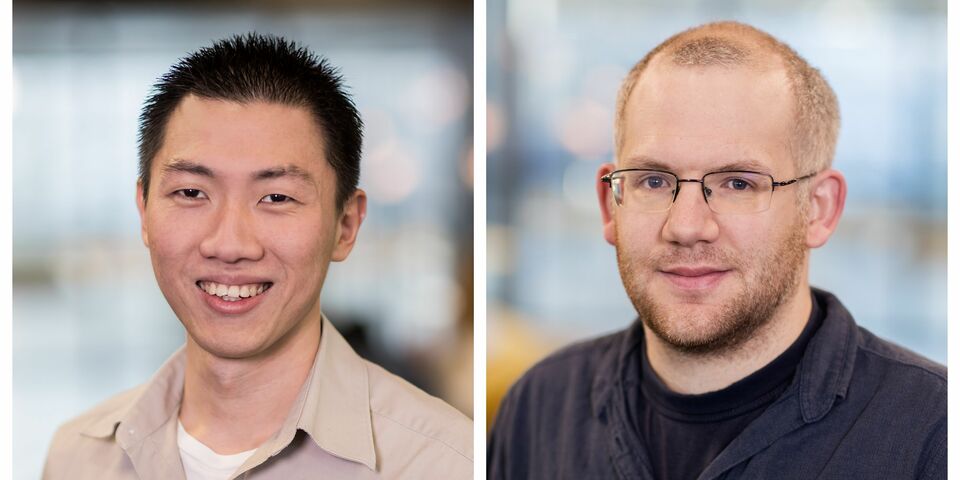ERC starting grants on cell communication and faster algorithms
The European Commission has awarded two ERC starting grants of nearly 1.5 million euro each to two young scientists from TU/e: Nicholas Kurniawan, from the department of Biomedical Engineering, and Jesper Nederlof, from the department of Mathematics and Computer Science. Kurniawan will study the communication over time between cells and their natural environment within the human body. Nederlof will design faster algorithms for hard computational problems in computer science. The grants provide the two researchers with the opportunity to further elaborate their own ideas during a period of five years.
Control cell communication
Cells in our body are exceptionally robust: they constantly adapt their properties and behavior to their physical environment. Similarly, the environment surrounding the cells (‘extracellular matrix’) has to adapt to accommodate cell activity. Cells and the extracellular matrix are in constant communication with each other, and this communication is essential for the formation and functioning of new human tissue. Also, when this communication is impaired, a variety of diseases could arise, ranging from cardiomyopathies to cancer.
“By smartly designing the extracellular matrix in the laboratory”, says Kurniawan, “we can control its communication with cells and, thus, steer cells behavior”. To this end, Kurniawan will design artificial environments in the laboratory, which will be used to deconstruct and rebuild the communication between cells and the extracellular matrix, and to study how changes in the extracellular matrix are sensed by the cells and vice versa. Also, he will investigate the concerted action of cells and the extracellular matrix for the formation of new tissue. “These findings will improve our fundamental understanding of cell and tissue physiology, tissue malfunctioning and diseases”, says Kurniawan. “Also, they will offer design principles for the development of biomaterials in the field of tissue regeneration.”
Faster algorithms in computer science
In computer science, an optimization problem is the problem of finding the best solution from all feasible solutions. The most frequent example of optimization problems is the one of the NP-complete problems (NP stands for Nondeterministic Polynomial time), namely problems with solutions that can be guessed without following any particular rule and verified in polynomial time.
Already in the 1960’s, researchers found elementary algorithms that reduced exponentially the execution time of these optimization problems. “Since then”, Nederlof explains, “Algorithms’ design seems to have hit a brick wall”. Take for example the Travelling Salesman Problem, a typical optimization problem in theoretical computer science. The problem asks, given a list of cities and the distances between each pair of cities, for the shortest possible route that covers each city and returns to the origin city. This problem, first formulated in 1930, is still intensively studied. And, surprisingly enough, the algorithms found in the 60’s are still the ‘best known’ for it. The aim of Nederlof will be to improve these elementary algorithms, such as the ones of the Travelling Salesman problem. Such algorithms are expected to have long term benefits for a broad range of applications, ranging from planning, to logistics and manufacturing.
ERC mission and grants
The ERC’s mission is to encourage the highest quality research in Europe through competitive funding and to support frontier research across all fields, on the basis of scientific excellence. ERC grants allow Europe's brightest minds to identify new opportunities and directions in any field of research, and catalyze new and unpredictable scientific and technological discoveries. Starting Grants have yearly calls and are meant for researchers of any nationality with 2-7 years of experience since completion of their PhD. More info can be found at this link.




Discussion